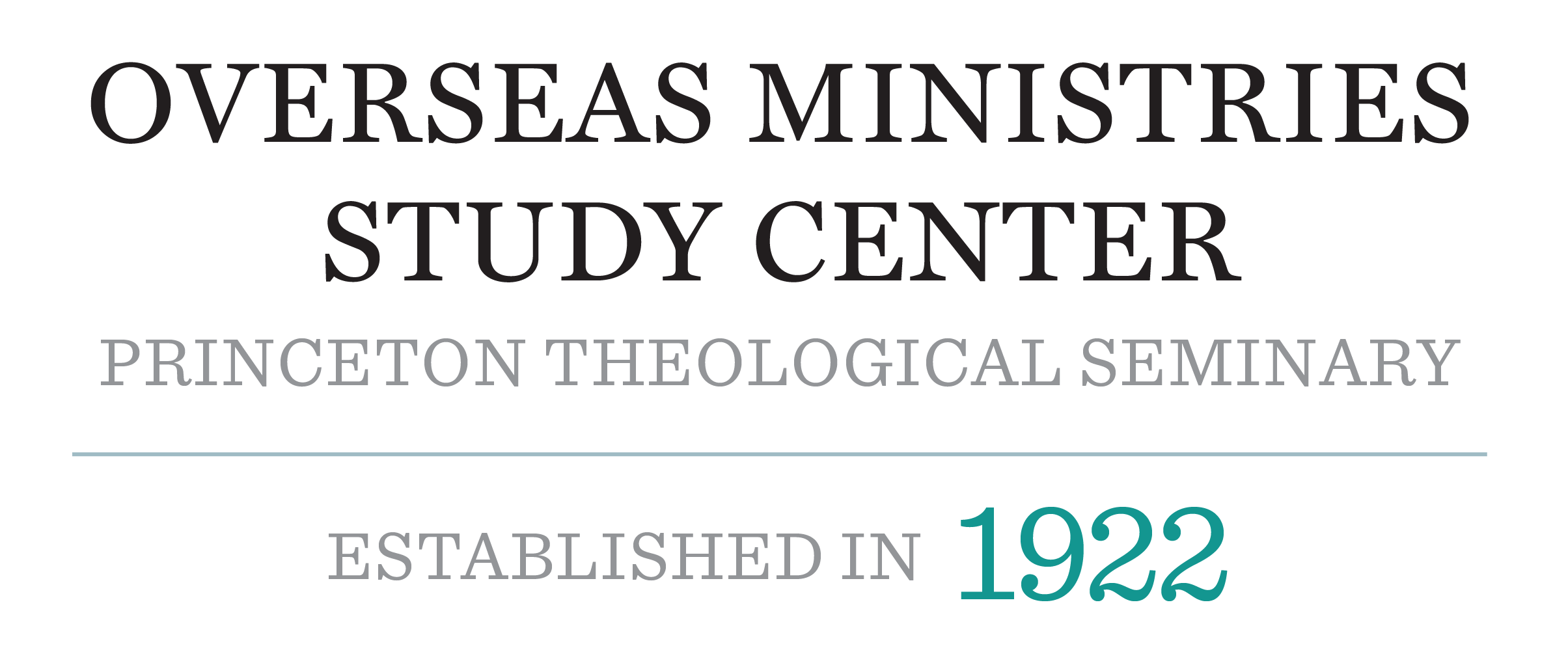By Younghwa Kim
The most exciting part of my work as a historian is delving into untold stories hidden within old letters, diaries, and newspapers. These untouched writings and photographs from the past lead me to narratives that have rarely been introduced or fully told. With the generous support of the Lamin Sanneh Research Grant, I conducted archival research to explore the stories of Korean Christian women in the twentieth century. These women, initially rooted in Confucian culture, forged new identities and ideas in a transnational setting, ultimately becoming global leaders and missionaries.
During my graduate coursework in the United States, I frequently encountered opportunities to explore the history of missions, recognizing its undeniable significance across various academic fields. However, I consistently observed that existing studies predominantly centered on Western missionaries, largely overlooking the voices and experiences of non-Western missionaries, particularly female ones. This gap is especially evident despite the significant growth and global impact of Korean missionary work in the past decades, leaving the stories of Korean missionary women untold. Their narratives are crucial for expanding our understanding of Christianity by broadening the scope of mission history to include non-Western agency.
My work directly addresses this scholarly gap by delving into the lives of Korean Christian women who navigated complex social, cultural, and transnational landscapes. Furthermore, previous studies on Korean Christian women primarily examined their modern education in Korea through interactions with Western missions, largely focusing on the first half of the twentieth century. In contrast, my extensive archival explorations at institutions such as the Korean Methodist Church Archive, the United Methodist Church Archive, Ewha Archive, and the National Assembly Library in Korea seek to uncover stories beyond this period. While men often held formal leadership positions in Korean churches, these Korean women were active participants, not passive recipients, in shaping their identities, ideologies, and practices.

For these Korean missionary women, teaching was deeply intertwined with their social goals. They held a profound belief that literacy would lead to both an awakening and social change for women in other parts of Asia. These women understood that the ability to read empowered women to transform their lives, allowing them to move beyond traditional societal rules. Having personally and communally experienced how education could offer new roles and status within society in Korea, these Korean women believed the same opportunities could be created for women in other Asian regions. They held a practical view of their religious faith that encompassed improving women’s lives and fostering community development.
My research, drawing extensively from diverse archival records, reveals robust transnational networks of support and communication among Christians in Korea, the United States, and South Asia involved in this mission and education for women. Furthermore, archival documents indicate that these Korean women diligently learned the local languages and cultures and adapted their approaches to suit the local contexts. They frequently incorporated aspects of their own Korean background and experiences into their work, making them more relevant and accessible for Pakistani Muslim women. This demonstrates that they were not merely mimicking Western missionaries; rather, Korean women actively shared, modified, and implemented ideas and practices locally, showcasing autonomy and cultural sensitivity.
Beyond academia, understanding these women’s efforts holds significant contemporary relevance. Their stories offer lessons about the profound impact of female leadership from the Global South and the enduring ability to build bridges between different cultures. In our increasingly interconnected world, their experiences provide a compelling historical example for anyone engaging with new social and religious cultures. By highlighting the active roles of Korean women in the history of Christianity in the Indo-Pacific, my research encourages a deeper recognition of diverse historical contributions. It moves beyond a Western-centric view of Christian history, particularly mission history, by revealing the deep commitment and agency demonstrated by Christians from the Global South.
My archival research, made possible by the Lamin Sanneh Research Grant, has been an exciting journey of discovery. The insights I have gained, particularly regarding the transnational engagement and work of Korean women in the Indo-Pacific, promise to provide a richer, more detailed understanding of World Christianity, mission history, Korean history, and the broader narratives of global history.



